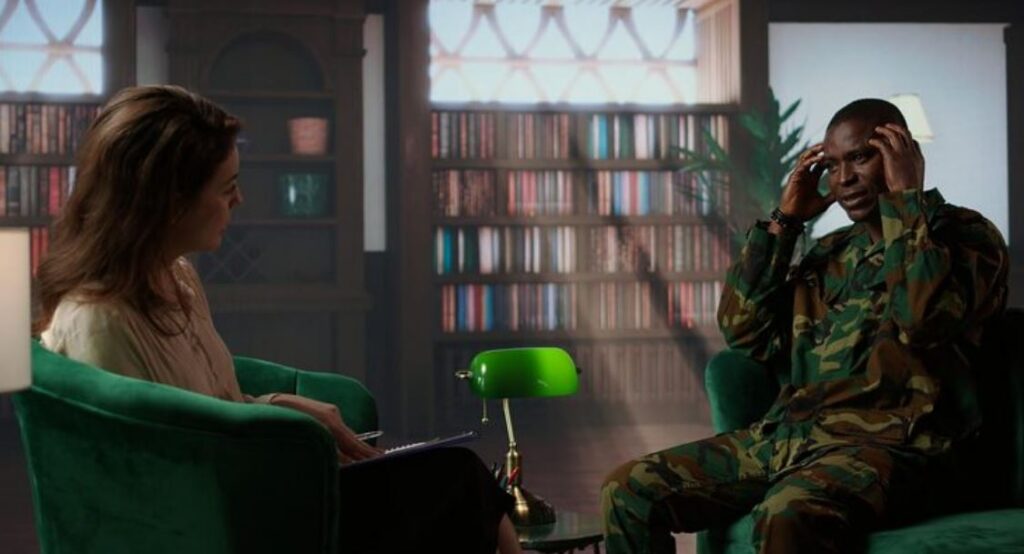
From a specialized interest, true crime podcasting has subtly transformed into an emotional examination of human nature. What is especially illuminating beneath its terrifying details is how tragedy can foster empathy. What started out as a shock-focused genre has developed into one that looks at compassion, justice, and the human spirit’s tenacity.
Serial by Sarah Koenig is still a very avant-garde example. Millions were drawn to a single question by her steady narration: what exactly is truth? She turned a local murder case into a mirror of societal prejudice and perception by conducting an incredibly accurate investigation into Adnan Syed’s case. Her approach, which was both analytical and incredibly compassionate, demonstrated that empathy and research could coexist.
| Category | Details |
|---|---|
| Common Themes | Empathy, justice, resilience, trauma, morality |
| Leading Hosts | Sarah Koenig, Ashley Flowers, Paul Holes, Kim Barker |
| Key Learnings | Emotional resilience, confronting bias, understanding motives |
| Societal Impact | Shifted cultural awareness of victims and justice systems |
| Major Platforms | Wondery, Spotify, iHeart, NPR, Audiochuck |
| Ethical Debates | Consent, accuracy, trauma sensitivity, audience responsibility |
| Audience Growth | Over 500 million listeners globally (2025) |
The Coldest Case in Laramie by Kim Barker provides yet another level of understanding. Barker’s meticulous reexamination of a murder that occurred decades ago emphasizes how grief endures in small towns. Every interview she does turns into an emotional excavation, revealing the human stories hidden beneath the evidence. Her incredibly patient and introspective style serves as a reminder to audiences that truth frequently comes to light gradually through shared suffering and shards of memory.
The Deck Investigates by Ashley Flowers shows how activism can be infused into storytelling. She turns what could have been a disturbing story into a sympathetic pursuit of justice by elevating the voices of the victims’ families. Every episode, which is frequently driven by empathy and teamwork, restores listeners’ sense of purpose and grants victims dignity. It’s a very helpful kind of advocacy because it’s tender, intimate, and extremely restorative.
In Buried Bones, Kate Winkler Dawson and Paul Holes follow a different but no less interesting path. Their method, which blends storytelling and forensic science, produces a dynamic interaction between empathy and intelligence. Dawson’s narrative sensitivity and Holes’ technical clarity combine to create discussions that are both methodical and incredibly human. Together, they serve as a reminder to listeners that comprehending crime necessitates emotional intelligence in addition to logic.
True crime podcasters have found a paradox over the years: they find compassion by researching violence. As the genre has developed, its reputation for voyeurism has diminished dramatically, instead encouraging introspection. More and more hosts are being open about their strategies, feelings, and moral limits. Because of this candor, the audience’s trust has significantly increased, transforming listeners from consumers into collaborators in a collective moral investigation.
Sistas Who Kill and other podcasts continue the conversation. MaRah and Taz, the hosts, reclaim stories that have been forgotten for a long time by approaching criminal narratives through the prisms of gender and race. Their voices are especially creative because they strike a balance between cultural sensitivity and humor, frustration, and insight. They show how prejudice affects justice and serve as a reminder to audiences that systems, not people, are frequently to blame for humanity’s shortcomings.
Investigative storytelling can spark reform, as demonstrated by other shows like Felonious Florida: Innocence Sold. The show’s journalists reveal societal neglect while honoring bravery by chronicling instances of exploitation and survival. Their reporting is incredibly sympathetic in addition to being educational. It uses empathy as its most powerful investigative tool and reframes journalism as a moral act.
A lot of podcasters admit that their work alters them. They become more sensitive to emotional subtleties after spending hours hearing testimony and examining supporting documentation. “You can’t listen to this much pain and not see yourself in it,” as Ashley Flowers once said. This observation, which captures how storytelling transforms both the creator and the listener—converting empathy into endurance—feels especially accurate.
Audiences have also significantly evolved. What started out as an interest in crime has developed into a form of group contemplation. Online conversations are becoming more and more about social responsibility, mental health, and trauma recovery. Listeners now seek understanding rather than sensationalism. The genre’s reputation has greatly improved as a result of this cultural shift, which has made it a safe place for reflection rather than consumption.
Under the surface, true crime podcasts have evolved into emotional testing grounds for empathy. The hosts act as pain translators, sensitively and carefully guiding listeners through moral ambiguity. Every episode turns into a study of duality: the coexistence of justice and forgiveness, cruelty and compassion. Podcasters demonstrate that humanity endures even in the most dire situations by sharing their personal tales.
This change has been especially motivating for journalism in general. Podcasters have demonstrated that integrity can flourish in popular media by focusing on storytelling that is grounded in respect and dignity. They demonstrate that accuracy does not have to come at the expense of emotion in reporting. Rather, it can be factual and deeply human, combining intelligence and compassion in a way that feels remarkably transparent and refreshingly honest.
